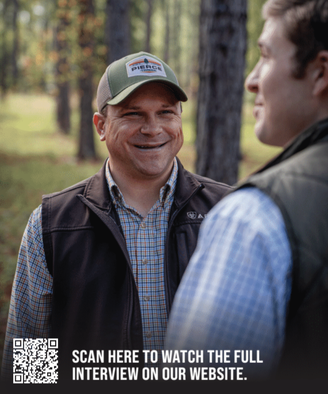Georgia Grown
Tyler Harper's Journey from Family Farm to Capitol Leadership
Winter 2024
By John Casey
Photography By Zach Clifton
“There’s not a day goes by that the department doesn’t interact with you in some way. The agriculture and forestry sector obviously impact every Georgian every single day, and I think we can do a better job at telling that story.” — Tyler Harper, Georgia’s Commissioner of Agriculture

|
Georgia Forestry Magazine is published by HL Strategy, an integrated marketing and communications firm focused on our nation's biggest challenges and opportunities. Learn more at hlstrategy.com
|
